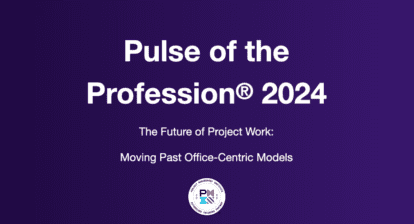
Ben Howard has spent a career in implementing complex enterprise solutions for organizations around the world, earning him his Most Valuable Professional credential from Microsoft. He currently heads his own consultancy, Applepark, in the United Kingdom, which specializes in Microsoft Project Server deployment and training. During Microsoft Project Virtual Conference 2016, Howard led two online sessions; a session on managing new product development with Project Online and a 3-part series on Microsoft Project 2016 essentials. Recently, Howard spoke with MPUG about why Project beats out Excel when it comes to managing a project schedule and what the biggest challenge is when it comes to managing new product development specifically.
MPUG: You’re going to discuss Project 2016 essentials and how to get started with the program. Who is that session intended for?
Ben Howard: It’s intended for anybody who might end up managing any sort of project. It’s not necessarily a project manager. You might be an office manager, an architect, a developer — anybody who just needs to get a project done, somebody who needs to manage a project as a part of a day-to-day role or even as a one-off.
Why wouldn’t these folks just use Excel?
Excel, of course, is a great tool. But what Excel is really good at is playing around with numbers, representing numbers in some sort of way. It’s not a scheduling engine, and that’s what Project is, a scheduling engine. If you put all your activities in — this action is going to take two days, that one will take half a day — and you put all of those in sequence and then you change something, you can see the impact of that change in the subsequent tasks for the project. Project is a scheduling engine that allows you to predict what is going to happen in the future based either on what has happened or what you’re planning to have happen. That’s what Project does exceedingly well. And that’s what Excel does not do. That’s why you should use Project.
You’re also giving a session on how to manage projects related to new product development. Can you share one of the biggest challenges you’ve seen in managing projects related to new product development?
There are lots of challenges with new products. The biggest challenge is around delivering them on time. Ultimately, you sell them. It’s a revenue model, and therefore you end up with lots of focus in the organization. If you think about many products, there’s a sweet spot for introducing it into the market. If you’re 18 months late in delivering a new mobile phone, you’ve just missed your whole market. So I think the real challenge with new product development is around time limits. It’s about getting a product to market that’s good enough for that market within the right timeframe.
Does Microsoft Project Online have some unique capabilities that are especially useful for managing this type of project?
Project Online is the whole Microsoft Project Server suite, hosted within Office 365. We’ll cover that as part of that session. If you think about new product development, it’s a whole team effort to get a new product to market. Project Online enables us to use something called the “project workspace,” which really allows a collaboration around the project. Not only can we see that project schedule, but we can see the critical path and manage any issues or risks. We can store all of our project documents. Rather than just sending emails, we actually have a collaborative workspace where everybody who is associated with the project can have input into that workspace and see all the latest documents, test results and market analysis and all of that. It goes a whole step further than just creating a nice project schedule for our new products.






